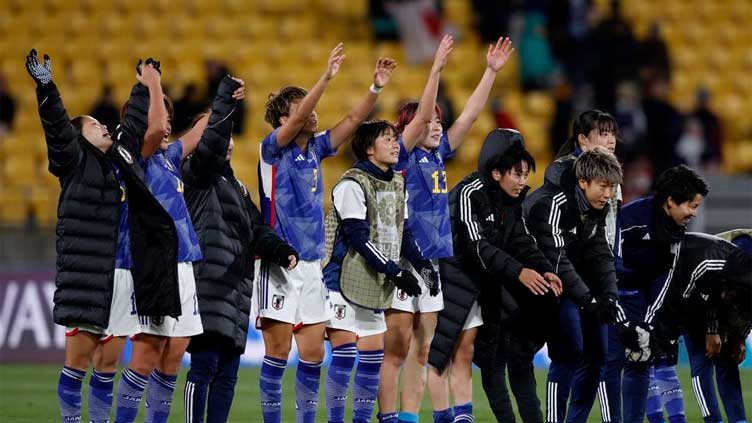Flexible, focused Japan in fine fettle heading into knockout phase

Sports
Young squad arrived at tournament determined to erase memory of the Nadeshiko's last 16 exit in 2019
WELLINGTON (Reuters) - Japan could hardly have enjoyed a better start to the Women's World Cup with three wins from three matches, including Monday's 4-0 thrashing of title contenders Spain, and a tally of 11 goals scored and none conceded.
Futoshi Ikeda's young squad arrived at the tournament determined to erase the memory of the Nadeshiko's last 16 exit in 2019, a huge disappointment to a nation which revelled in the 2011 World Cup triumph and run to the final four years later.
Attacking midfielder Hinata Miyazawa tops the goalscoring charts after netting twice in each of the two games she started but Ikeda has been rotating his squad so she was on the bench at kickoff in the 2-0 win over Costa Rica.
Ikeda will hope that giving young players a chance to have a taste of the tournament in the group stage will hold them in good stead in the knockout rounds, which start for Japan in Wellington on Saturday against Norway.
What might concern the experienced Norwegians more, however, is the versatility of tactics Japan have used, taking a radically different approach to the Spain clash than they did in the 5-0 drubbing of Zambia as well as the Costa Rica game.
In the first two games they took the initiative, looking to get the ball back quickly when they lost it and moving it through midfield playmaker Yui Hasegawa to players flooding the forward positions.
Hasegawa was left out of the Spain match and Japan allowed their opponents the majority of possession, defending for long periods before striking on the break with ruthless counter-attacks. "It was great that we scored those goals and the match flowed as we planned," Ikeda said afterwards.
"Winning this way will give the players confidence. The knockout stage will be a different battle and we'll prepare well for that." The importance of concentration is a theme Ikeda has returned to throughout the tournament as it is key to playing three defenders instead of four at the back.
When under pressure, the two wide midfielders pull back into the defensive line while everyone else bar one striker forms another line in front of them. The Spanish found the defence impossible to break down on Monday but it does require each Japan player to have the discipline to stick unwaveringly to their role.
"Players on the defensive line, including the goalkeeper, have competed in the three matches without giving up any goals and stayed focused," Ikeda added. "Forwards and midfielders also share the idea of being able to switch their roles to defend the goal, and I think they did a good job."

